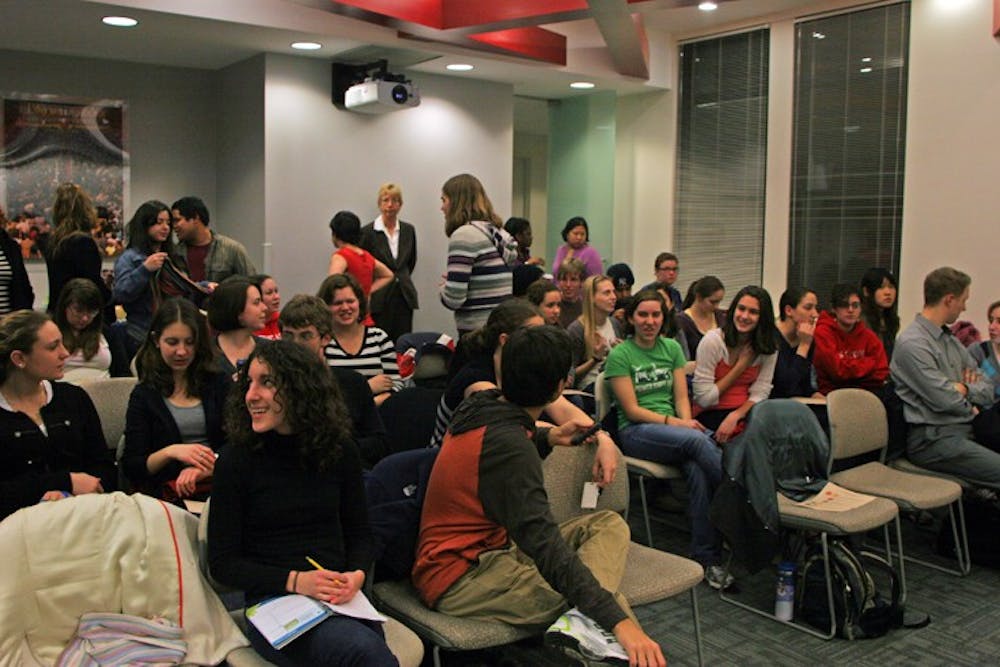Slavery still exists in the United States today, and 10 percent of those slaves come from the agricultural industry, according to Bon Appétit East Coast Fellow Carolina Fojo.
Fojo revealed this and other facts about the food industry while simultaneously touting Bon Appétit’s efforts at socially responsible buying practices to a room filled with AU students Thursday, Jan. 28.
Bon Appétit, which caters to such businesses as Google and Yahoo, also works for AU and other college campuses throughout the U.S., according to Fojo.
Bon Appétit advertised the presentation as the “story behind the food.” It consisted of a PowerPoint with pictures of lush vegetables, talking points about sustainability, potentially unsafe practices in the food industry and promotion of what the company has done to combat these hazards.
Fojo also touched on the benefits of locally-grown food, commercial salmon farming, the livestock and poultry industries, climate change and the plight of farmhands.
Fojo identified farm workers’ rights as the concern dearest to her heart and important to her employer, as well.
“For Bon Appétit, the farm worker issue is at the top of our plate,” Fojo said.
In the United States, 10,000 or more people participate in forced labor at any time, according to the Human Rights Center at the University of California, Berkeley.
Jennifer Jones, president of EcoSense, said she invited Fojo to speak at the university on Thursday.
The room in the Mary Graydon Center reserved for the presentation was filled with students. Bodies lined the room, leaning on counters and against the glass walls.
Jones said she was happy with the turnout and thought Bon Appétit was “doing great” in their efforts to go green. However, unsustainable sugars were not mentioned in the presentation.
“That might be something they could work on in the future,” Jones said. “Perhaps they already have some sort of program, I’m not sure. Continuing to be an innovator in that field would be awesome.”
After Fojo’s speech, she invited students to dine on hors d’oeuvres, including wild-caught salmon, sushi, tomato fondue with mozzarella and crostini. Reusable glasses had been set out for beverages.
There was not a plastic bottle of water in sight.
You can reach this staff writer at sparnass@theeagleonline.com.





